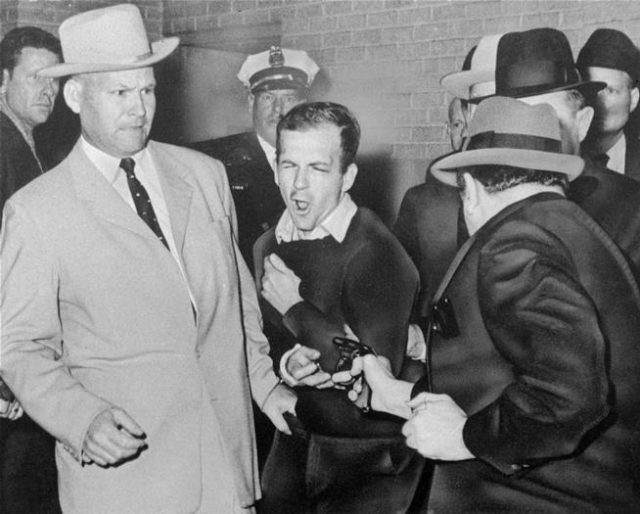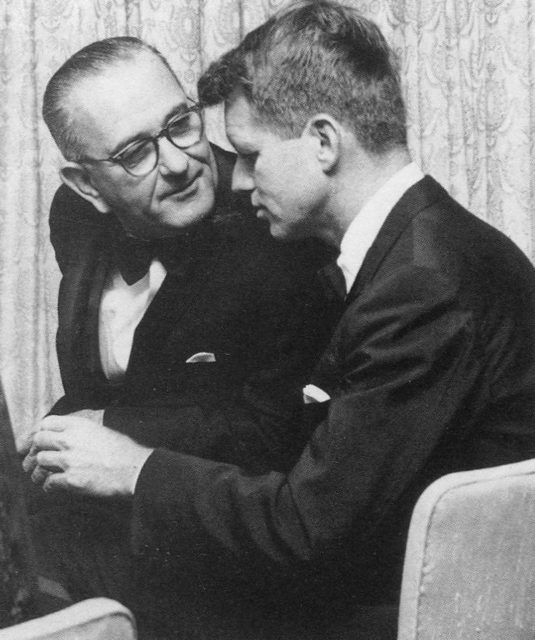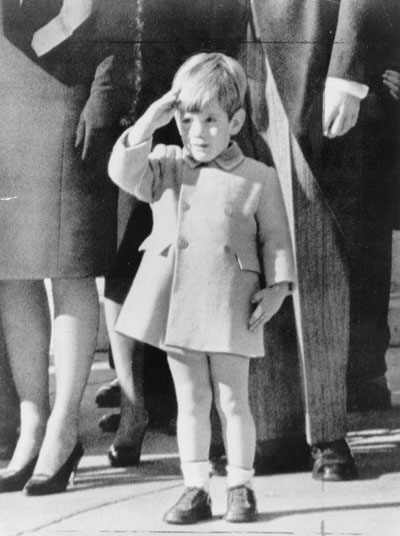JFK & RFK Murders Investigated by Dr. Laurent Guyenot
A new article by leading Deep State explicator Dr. Laurent Guyénot
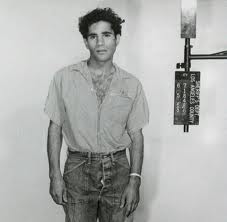
Sirhan Sirhan after his arrest
In his groundbreaking book Conspiracy Theory in America (U. of Texas Press, 2014)) Lance deHaven-Smith argues that instead of referring to the “Kennedy assassination” (meaning JFK’s public execution in Dealy Plaza) we should use the plural “Kennedy assassinations.” The two events, he suggests, were episodes of the same crime, obviously committed by the same perpetrators.
We are approaching the June 5th anniversary of Robert F. Kennedy’s murder. Like the killing of his brother five years earlier, the RFK assassination was a coup d’état, eliminating the man who was all but certain to be elected president in November 1968.
If we are ever to make the USA a nation fit for human beings, we will have to begin by annihilating the Deep State responsible for these and so many other crimes. And among the guides who can best help us understand that Deep State in order to target it properly is Laurent Guyénot, author of JFK-9/11: 50 Years of Deep State.
Following careers as an engineer and medievalist historian, Dr. Laurent Guyénot has become one of our most trusted voices on the Deep State, SCADS (State Crimes Against Democracy), and false flags. His contribution to We Are NOT Charlie Hebdo (the French translation of which was published this week) is a key contribution to understanding how Gladio B’s false flags may be the fruits not only of cooperation but also competition between national intelligence agencies, with the Israeli Mossad infiltrating and manipulating European and American agencies.
Below is Dr. Guyénot’s new article on the RFK coup d’état, which we are honored to publish here at Veterans Today.
–Kevin Barrett, Veterans Today Editor
SIRHAN SIRHAN and the mystery of Islamic synthetic terror
by Laurent Guyénot
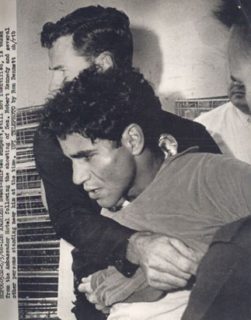
A Palestinian terrorist?
In the night of June 5th 1968, twenty minutes after midnight, New York senator and presidential candidate Robert Kennedy was shot dead in the overcrowded pantry of the Ambassador Hotel in Los Angeles. He had just left the grand ballroom where he had celebrated his victory at the Californian Democratic primaries. This victory made him the most likely nominee of the Democratic Party. In front of Richard Nixon, who had already lost against his brother John Kennedy in 1960, Bobby would have won. At the age of 43 years old, he would have been the youngest American president in history, after having been the youngest secretary, as Attorney General in his brother’s government. Instead, Nixon won.
Just hours after Robert’s assassination, the press was able to inform the American people, not only of the identity of the assassin, but also of his motive, and even of his detailed biography. Twenty-four-year-old Sirhan Bishara Sirhan was born in Jordania, and had moved to the United States when his family had been expelled from West Jerusalem in 1948. After the shooting, a newspaper clipping was found in Sirhan’s pocket, quoting Robert’s following statement: “the United States should without delay sell Israel the 50 Phantom jets she has so long been promised.” Handwritten notes by Sirhan found in a notebook at his home confirmed that his act had been premeditated and motivated by the hatred of Israel. Jerry Cohen of the Los Angeles Times wrote, in a front page article on June 6, that Sirhan is “described by acquaintances as a ‘virulent’ anti-Israeli” (Cohen opted for “virulent anti-semite” in another article for the The Salt Lake Tribune), and that:
Cohen infers that “Senator Kennedy […] became a personification of that hatred because of his recent pro-Israeli statements.” Cohen further learnt from Los Angeles Mayor Samuel Yorty that:investigation and disclosures from persons who knew him best revealed [him] as a young man with a supreme hatred for the state of Israel.”
“About three weeks ago the young Jordanian refugee accused of shooting Sen. Robert Kennedy wrote a memo to himself, […] The memo said: ‘Kennedy must be assassinated before June 5, 1968’—the first anniversary of the six-day war in which Israel humiliated three Arab neighbors, Egypt, Syria and Jordan.”
In a perhaps cryptic final note, Cohen cited Prof. Joseph Eliash of UCLA’s Near Eastern languages and literature departement, who remarked that “His name, both first and last, is that of an ancient Arab tribe which once roamed the Syrian Desert,” and that his middle name, Bashara, means “good news.”[1]
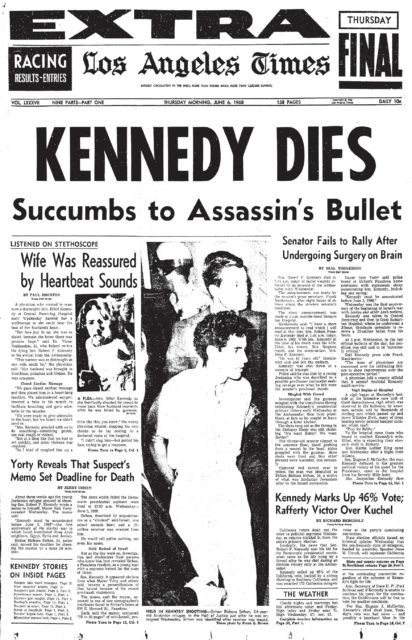
In 2008, on the occasion of the 40th anniversary of Bobby’s assassination, this tragic day was installed into the post-9/11 mythology of the Clash of Civilization and the War on Terror. The Jewish
Daily Forward wrote:
“One cannot help but note the parallel between Kennedy’s assassination and the terrorist attacks of September 11, 2001. In both tragic cases, Arab fanaticism reared its ugly head on American soil, irrevocably changing the course of events in this country.”
“Robert Kennedy was the first American victim of modern Arab terrorism.”
“Sirhan hated Kennedy because he had supported Israel.”
Writing for the Boston Globe, Sasha Issenberg recalled that the death of Robert Kennedy was “a first taste of Mideast terror.” He quotes Harvard professor Alan Dershowitz, a former volunteer in Robert Kennedy’s campaign (better known as Jonathan Pollard’s lawyer), reflecting:
“I thought of it as an act of violence motivated by hatred of Israel and of anybody who supported Israel,”
“It was in some ways the beginning of Islamic terrorism in America. It was the first shot. A lot of us didn’t recognize it at the time.”[2]
For the Jewish Forward, the point was to tell the Jews: “See, it’s always the same eternal hatred of Jews and Israel.” For the Boston Globe, the point was to tell Americans: “We are all Israelis.” (The Boston Globe is owned by the New York Times, controlled by the Sulzberger family, although Dershowitz would dismiss such remark as “nonsense”, in his 2010 article, “Do Jews Control the Media?”)[3].
The fact that Sirhan was from a Christian family was lost on Dershowitz, who speaks of “Islamic terrorism.” But the Jewish Forward took care to mention it, only to add that Islam ran in his veins anyway:
No doubt such declarations, and worse ones, will be repeated on the occasion of the 50th anniversary of RFK’s death in June 2018. Let’s take them seriously for a moment, and let’s see what kind of anti-Zionist terrorist Sirhan Sirhan was. By looking more closely into his case, perhaps we shall discover something about the nature of this post-modern terrorism that infects our world and our mind since September 11th, 2001.“But what he shared with his Muslim cousins — the perpetrators of September 11 — was a visceral, irrational hatred of Israel. It drove him to murder a man whom some still believe might have been the greatest hope of an earlier generation.”[4]
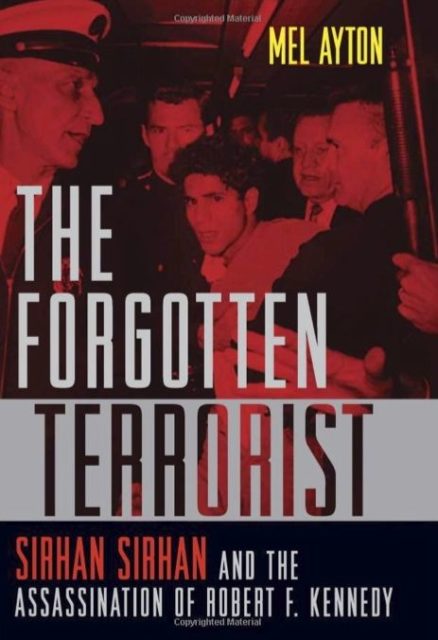
Mel Ayton, who specializes in debunking conspiracy theories, attempted to demonstrate that “Sirhan was the lone assassin whose politically motivated act was a forerunner of present-day terrorism,” (as written on the back cover).
Did Sirhan kill RFK?
First question: Did Sirhan really kill Robert Kennedy? Over the years, independent investigators have uncovered many crucial facts that went unnoticed during Sirhan’s trial, facts that even Sirhan’s State-appointed lawyers deemed irrelevant. Ballistic and forensic evidence suggest that, in fact, none of Sirhan’s bullets hit Kennedy. Dr. Thomas Noguchi, the coroner who conducted the autopsy, concluded (and confirmed in his 1983 memoirs, Coroner) that the fatal bullet was fired a few inches behind the right ear of Kennedy, following an upward angle. Yet all the witnesses confirmed that Robert had never turned his back on Sirhan and that Sirhan was five to six feet away from his target when he fired. Moreover, Sirhan was physically overpowered by Karl Uecker after his second shot, and, although he continued pressing the trigger mechanically, his revolver was then not directed toward Kennedy. The counting of all impacts and wounds indicated that at least twelve bullets had been fired, while Sirhan’s gun carried only eight. William Harper, a nationally respected West Coast criminologist, compared the bullet removed from Kennedy’s neck with one removed from a bystander, and concluded that they « could not have been fired from the same gun. » A 2008 analysis of audio recordings during the shooting has confirmed that two guns are heard[5]. To this must be added the incredible fact that LAPD criminologist DeWayne Wolfer introduced the wrong gun into evidence as the murder weapon instead: the serial number of the gun produced at the court differed from the one written down by the policeman who first got hold of Sirhan’s gun.
There are strong suspicions that the revolver which was positively identified as the crime weapon belonged to Thane Eugene Cesar, a security guard hired for the evening, who was set behind Kennedy at the time of shooting, and seen with his pistol drawn by several witnesses, one of whom, Don Schulman, positively saw him fire. Cesar was never investigated, even though he did not conceal his hatred for the Kennedys, who according to him had “sold the country down the road to the commies.”[6]
Even granting that Sirhan was Robert Kennedy’s assassin, another fact raises disturbing questions: witnesses noticed that Sirhan seemed like in a trance, and showed extraordinary strength for his size, when physically contained. After the shooting, he appeared disoriented and exhausted. Sirhan Sirhan has always claimed, and continues to claim, that he has never had any recollection of his act:
“I have never been able to remember what happened in that place at that time. And I have not been able to remember many things and incidents which took place in the weeks leading up to the shooting,” he said again in a parole hearing in 2011, failing to convince the judges for the fourteenth time.[7]
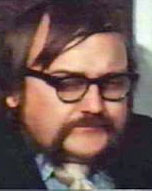
Joseph William Bryan – Sirhan’s hypnotherapist?
Psychiatric expertises, including lie-detector tests, have confirmed Sirhan’s amnesia. Doctor Bernard Diamond of the University of California, who hypnotized Sirhan soon after his arrest to try to unlock his memory of the events, noted that he was highly suggestible. In the weeks prior to shooting Kennedy, Sirhan had been seen at a local pistol range, accompanied by two men, and Harvard University professor Daniel Brown, a noted expert in hypnosis and trauma memory loss, who interviewed him for 60 hours in 2008, said that managed to remember that, at the moment of the shooting, “he found himself at a pistol range, holding a gun he had never seen before.” Available information is two sketchy to reconstitute entirely the way Sirhan had been programmed. We know that he had been treated by a neurosurgeon after a head injury, after which his behavior had changed, as noted by his relatives. We also know he was interested in occultism and attended the Rosicrucian order AMORC, founded by Spencer Lewis. One person who may have been involved in Sirhan’s programming, as who reportedly bragged about it to two prostitutes, is famed hypnotist Dr. William Joseph Bryan Jr., who makes no secret of having worked for the Air Force in the “brainwashing section.” Bryan’s biggest claim to fame, about which he bragged all the time, was how he had hypnotized and deprogrammed the Boston Strangler, allegedly Albert Di Salvo who thereafter confessed to the crime. Under hypnosis, Sirhan Sirhan robotically wrote in his notebook “God help me . . . please help me. Salvo Di Di Salvo Die S Salvo.” It is surmised he heard the name while under hypnotism[8].
Other pages of the same notebook, which Sirhan recognizes as being from own handwriting but does not remember writing, is reminding of a kind of automatic writing:
These words are dated May 18 in Sirhan’s notebook. However, during his interrogation, Sirhan claimed that his urge to kill Kennedy was triggered by a documentary he saw on TV mentioning Robert Kennedy’s support of Israel in 1948, and this documentary (The Story of Robert Kennedy, directed by John Frankenheimer) was only aired on May 20. This is one of many more contradictions in the official thesis.“My determination to eliminate R.F.K. is becoming more the more of an unshakable obsession . . . R.F.K. must die – RFK must be killed. Robert F. Kennedy must be assassinated R.F.K. must be assassinated . . . R.F.K. must be assassinated assassinated . . . Robert F. Kennedy must be assassinated before 5 June 68 Robert F. Kennedy must be assassinated I have never heard please pay to the order of of of of of.”[9]
Was Robert Kennedy a friend of Israel?
If Sirhan was, like Oswald, a patsy, only of a more sophisticated type (the Manchurian candidate type), the next question is: Who had interest in having people believe that Robert was killed by a fanatic Palestinian motivated by the hatred of Israel? To raise the question is to answer it. But then, we are faced with a dilemma, for if Robert Kennedy was supportive of Israel, why would Israel kill him? The dilemma is an illusion, it rests on a misleading assumption: in reality, Robert Kennedy was not pro-Israel. Simply, he was campaigning, and willing to win. As everyone knows, a few good wishes and empty promises to Israel are an inescapable ritual in such circumstances. And Robert’s statements didn’t exceed the minimal requirements. His only two declarations on this point were made before Jewish congregations. David Lawrence, author of the Pasadena Independent Star-News article of May 27 found in Sirhan’s pocket had, in an earlier article entitled “Paradoxical Bob”, underlined how little credit should be given to such electoral promises: “Presidential candidates are out to get votes and some of them do not realize their own inconsistencies.” As for the documentary aired on May 20, 1968 mentioning Robert’s trip in Palestine in 1948, it was another electoral advertising destined for the Jewish voters. When Robert Kennedy had visited Palestine, one month before Israel declared its independence, he was 22 years old. In the series of articles he drew from that trip for the Boston Globe, he praised the pioneer spirit of the Zionists, and expressed the hope that: “If a Jewish state is formed it will be the only remaining stabilizing factor in the near and far East.” But he had also voiced the fears of the Arabs in quite prophetic terms:
“The Arabs are most concerned about the great increase in the Jews in Palestine: 80,000 in 1948. The Arabs have always feared this encroachment and maintain that the Jews will never be satisfied with just their section of Palestine, but will gradually move to overpower the rest of the country and will eventually move onto the enormously wealthy oil lands. They are determined that the Jews will never get the toehold that would be necessary for the fulfillment of that policy…”
Less than five years before his presidential bid, Robert Kennedy had not been, in his brother’s government, a particularly pro-Israel Attorney General: he had infuriated Zionist leaders by supporting an investigation led by senator William Fulbright of the Senate Committee on Foreign Relations, aimed at registering the American Zionist Council as a “foreign agent” subject to the obligations defined by the Foreign Agents Registration Act of 1938, which would had considerably hindered its efficiency (after 1963, the AZD escaped this procedure by changing its status and renaming itself AIPAC)[10]. All things considered, there is no ground for believing that Robert Kennedy would have been, as president of the US, particularly Israel-friendly. His brother certainly had not been. The Kennedy family, proudly Irish and Catholic, was known for its hostility to Jewish influence in politics, a classic theme of anti-Kennedy literature, best represented by the 1996 book by Ronald Kessler, with the highly suggestive title, The Sins of the Father: Joseph P. Kennedy and the Dynasty He Founded[11]. During John’s presidential campaign, the Israeli party Herut wondered publicly if the father, Joe Kennedy, “did not inject some poisonous drops of anti-Semitism in the minds of his children.”[12]
In conclusion, it is only by an outstanding hypocrisy that The Jewish Daily Forward could write, on June 6, 2008:
Robert Kennedy’s death had not been a bad thing for the precious “American-Israeli relationship.” Would he have saved Israel from disaster in 1973, as had Nixon and Kissinger with unlimited military support against Egypt? Nothing is less sure.In remembering Bobby Kennedy, let us remember not just what he lived for, but also what he died for — namely, the precious nature of the American-Israeli relationship.”[13]
But let us assume, for the sake of argument, that Robert Kennedy was perceived as pro-Israel in 1968. All the same, Israel would have had interest in eliminating him, for the simple reason that Robert was, above all else, his brother’s heir and avenger. I am going to explain this bold statement in the rest of this article.
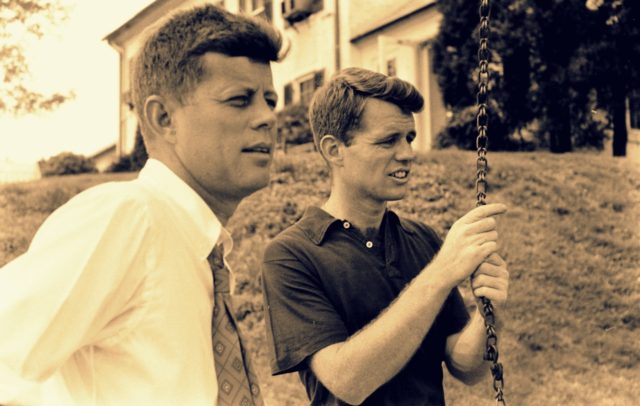
John and Robert were so atuned that they rarely needed to finish their sentence to understand each other, said Arthur Schlesinger [14].
To begin with, let us examine what kind of brother was Robert. All of his biographers have stressed his total commitment and loyalty to his brother John, whom he lionized. In return, John had come to trust his judgment on almost every issue, and had made him, not only his Attorney General, but also his closest adviser. Robert didn’t have John’s charisma, or his ambition. He felt that his brother’s coat, which he had literally worn during his first months of mourning, was too big for him. If he finally decided to run for president in 1968, it was under the pressure of destiny. As a lover of Greek tragedies, Robert believed in fate. And he knew that he was, in the eyes of millions of Americans, the legitimate heir to the murdered king — as well as his avenger, even if the thought was rarely voiced. His public appearances led to displays of fervor never seen before for a presidential candidate, and his total lack of concern for his own security made him look all the more genuine.
This exceptional brotherly friendship between John and Robert has an obvious implication for the investigator into Robert’s death. And the fact that this is seldom mentioned is a cause for wonder. As Lance deHaven-Smith has remarked in Conspiracy Theory in America, “It is seldom considered that the Kennedy assassinations might have been serial murders. In fact, in speaking about the murders, Americans rarely use the plural, ‘Kennedy assassinations’. […] Clearly, this quirk in the Kennedy assassination(s) lexicon reflects an unconscious effort by journalists, politicians, and millions of ordinary Americans to avoid thinking about the two assassinations together, despite the fact that the victims are connected in countless ways.”[15] When John’s death is discussed, Robert’s death is not mentioned, and when Robert’s death is the issue, John’s death is only alluded to. But John and Robert should be considered as two brothers united by and unshakable love and loyalty, and not as separate individuals victims of unrelated murders — or of some kind of mysterious curse. What is the probability that these two murders are unrelated? Rather, we should start with the assumption that they are related. For there is a good chance that in the link between both resides their solution.
Israel and JFK’s murder
Both murders have at least two things in common: Johnson and Israel. First, consider the fact that they precisely frame the presidency of Lyndon Johnson, who controlled both investigations: Johnson became president the day of John’s death, and he retired a few months after Robert’s death. As for Israel’s implication, it is the plot to blame an anti-Israel Palestinian, which gives it away in Robert’s case. In John’s case, Israel’s fingerprint is even more unmistakable, and one must wonder why most investigators make so much effort not to see it. By a strange paradox, those who do not believe in Oswald’s guilt nevertheless try to find the culprit by scrutinizing Oswald’s weird biography. It is like trying to solve 9/11 by studying Osama bin Laden’s life. The obvious track to follow is rather that of the man who silenced Oswald, making sure he would not repeat in a court hearing what he had managed to tell journalists in a Police station corridor: “I’m just a patsy!” Oswald’s murderer is Jacob Leon Rubenstein: he is the only real murderer caught in relation to the Dallas assassination plot. Yet his trail seems to be “the road less travelled.” Hardly anybody has ever heard his full name, for he is simply called Jack Ruby — which sounds conveniently Italian for a mobster, as he is sometimes depicted. And who has ever read that Ruby confessed separately to his rabbi (Hillel Silverman) and to his lawyer (William Kunstler): “I did it for the Jews!”[16] Jack Ruby was intimately connected to the Jewish mafia — the Mishpucka (“Family” in Hebrew), also known as the “Yiddish Connection”. As Gail Raven, a former girlfriend of Ruby and nightclub dancer in his Carousel Club, once said: “He had no choice. […] Jack had bosses, just like everyone else.”[17]. Jack Ruby’s boss and mentor was Hollywood mobster Mickey Cohen, successor to Benjamin “Bugsy” Siegelbaum, head of Murder Incorporated. Cohen became infatuated with the Zionist cause after World War II, as he explained in his memoirs: “Now I got so engrossed with Israel that I actually pushed aside a lot of my activities and done nothing but what was involved with this Irgun war”; what kept him so busy was mostly stealing WWII American surplus weapons for Israel.[18] Mickey Cohen “spent a lot of time” with Menahem Begin, the former Irgun chief, according to Gary Wean, former detective sergeant for the Los Angeles Police Department.[19]
CONTINUED...






 Sat Mar 23, 2024 11:33 pm by globalturbo
Sat Mar 23, 2024 11:33 pm by globalturbo